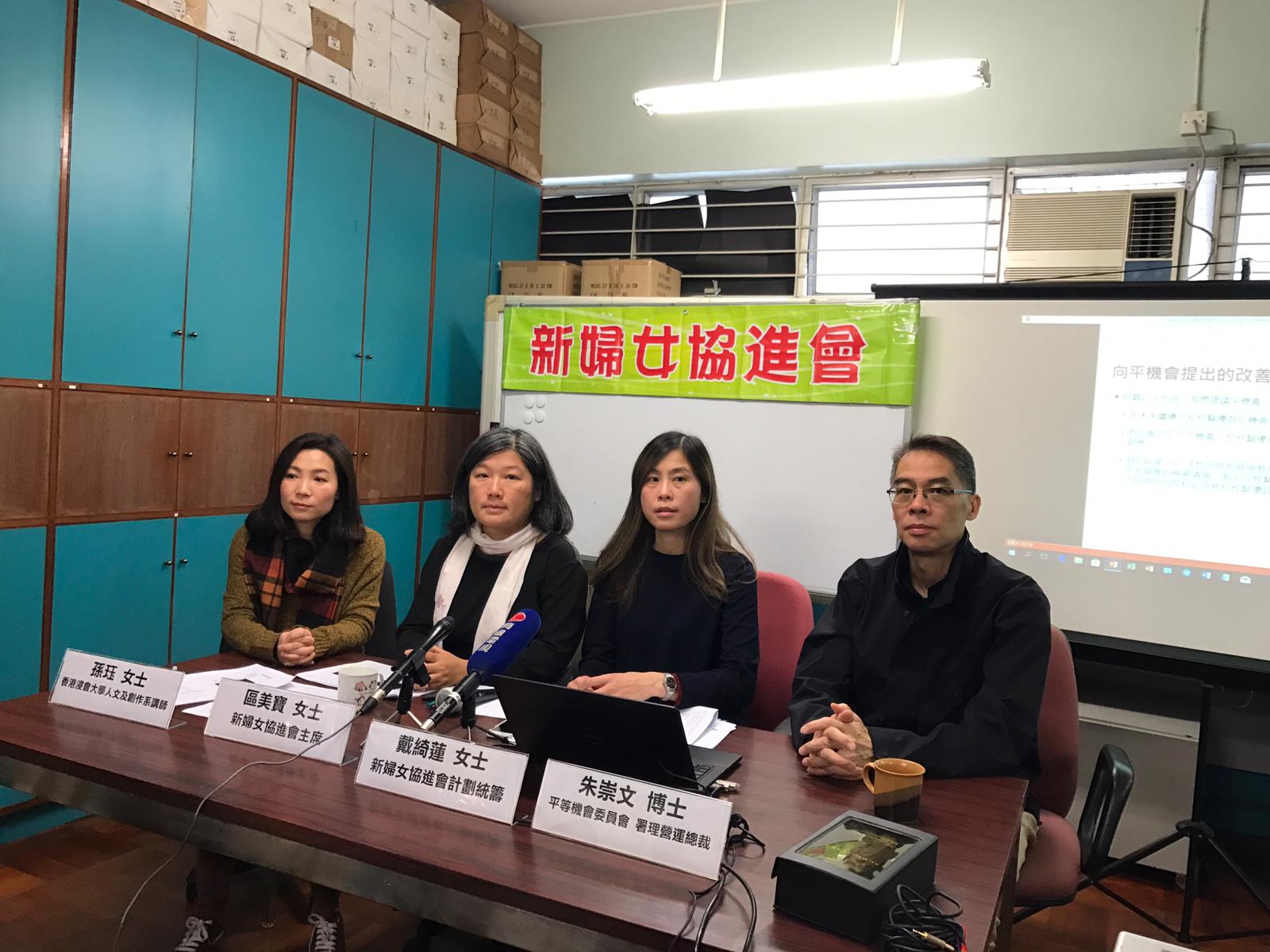
Self-financed tertiary institutions must step up efforts to curb sexual harassment
On 17 February 2019, the Association for the Advancement of Feminism (AAF) released the findings of a study funded by the EOC on anti-sexual harassment (SH) policies in the tertiary education sector. The anti-SH policies of eight UGC-funded universities and 10 self-financed tertiary institutions that offer sub-degree and degree programmes were assessed against a checklist of 36 criteria developed by AAF.
Divided into four broad categories, namely “policy making”, “policy content”, “complaint handling procedures” and “policy implementation”, the checklist examines, among other things, whether the policy mentions the definition of SH under the law, the possibility of disciplinary action, ways to lodge a complaint and the contact information of the person(s) designated to handle complaints.
While UGC-funded universities met 79.2% of the listed criteria overall, self-financed institutions received a much lower score (49.2%). In particular, the latter fared poorly in terms of “policy content” and “policy implementation”, with only 37% and 38% of the listed items checked respectively. They also met less than half (49.2%) of the criteria related to “complaint handling procedures”.
Tertiary institutions, especially self-financed ones, are recommended to review and refine their written SH policies on a regular basis. They must clearly communicate the areas covered by the policy (e.g. sexual harassment both on and off campus, during and after school hours, etc.), as well as the assistance and protection offered to affected parties in the case of a complaint. This is best complemented by training and refresher programmes for students and staff, which should work towards nurturing values of gender equality and mutual respect.

